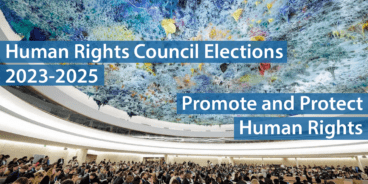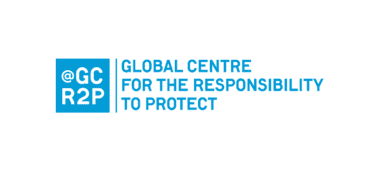
Open Letter to the Organization for the Security and Cooperation of Europe on Kyrgyzstan
We write to urge you to use the opportunity of this Thursday’s meeting of the Permanent Council to take decisive action to prevent atrocities in Kyrgyzstan. This Sunday’s referendum that was carried out in a peaceful manner was a step in the right direction for Kyrgyzstan, yet the tenuous calm that prevails post-referendum is all too fragile. Without external assistance, in the coming weeks and months, the country may very well see a reoccurrence of the atrocities of two weeks ago. To deter future attacks and assist in providing immediate protection to vulnerable people, the Council must authorize the deployment of a robust international police stabilization mission.
Hundreds, possibly thousands of people, primarily ethnic Uzbeks, have already been killed and unknown numbers were raped. In mixed communities, ethnic Kyrgyz homes, marked with red paint to identify them, were spared, while at least 1,400 homes belonging to ethnic Uzbeks were burnt to the ground, and 400,000 people were forcibly displaced. While precise information about the instigators of the attacks is unknown, credible witnesses report that some personnel from both the armed forces and the police were implicated in the attacks.
It is clear that the provisional government of Kyrgyzstan bears the primary responsibility to protect its population. Yet the government remains unable to provide adequate protection to the displaced, returning refugees, and ethnic Uzbek communities. Not only has the government recognized this weakness, but it has called, repeatedly, for international assistance. The lack of international assistance in response to these requests leaves the internally displaced and returnees vulnerable to attacks and inhibits their ability and desire to return to their homes.
The potential for future violence is exacerbated both by the existence of large groups of perpetrators who can be mobilized to commit atrocities again, and the proliferation of weapons, including those stolen from government depots. Furthermore, trust between communities has been eroded and radicalization of ethnic Uzbek and ethnic Kyrgyz communities is on the rise, making reconciliation efforts all the more difficult.
The state’s capacity to protect must be strengthened or the opportunity created by the peaceful referendum to set the country on the right path, will be lost. On Thursday, you as members of the OSCE must answer the plea of the government of Kyrgyzstan to deploy police.
While the tentative OSCE proposal of 50 to 100 police monitors is a positive step, when compared to the international community’s inaction to date, the proposal falls dramatically short of what is needed in light of the risk of further atrocities taking place. What is now needed is the deployment of a robust armed police presence, numbering in the hundreds.
The force should be significant enough in number and capacity to deter attacks and provide physical protection to populations at risk including returnees, displaced people at the border, and ethnic Uzbek communities in Osh, Jalalabad and the surrounding rural areas. Such a force should have a mandate to provide protection, assist the Kyrgyz police forces in undertaking law enforcement, and aid in creating breathing space to allow for a multi-pronged effort to strengthen Krygyzstan’s capacity to prevent and protect. The efforts towards strengthening capacity and preventing future atrocities should focus on ensuring accountability, including an immediate international investigation, undertaking security sector reform, and facilitating local level dispute resolution and reconciliation.
Individual OSCE member states must step forward to help define the mandate, contribute appropriately trained personnel, and place pressure on those blocking efforts to play a more constructive role. To make a difference, the presence should be deployed within days not months. More time cannot be lost. Inaction creates not only the opportunity for further violence and atrocities, but also a powder keg of regional instability that should it erupt, will leave the OSCE facing graver problems than it does today. States must, in keeping with their commitment to the responsibility to protect, cooperate to deploy a robust police mission.
